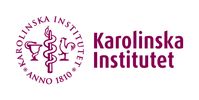International workshop on the risks and medical possibilities of nanotechnology
While nanotechnology offers enormous opportunities in a wide range of important areas, nanomaterials may also exert adverse effects on human health. New findings on the potential risks and medical applications of nanotechnology are to be presented at an international workshop at Karolinska Institutet on 15-16 June.
The Institute of Environmental Medicine (IMM) presents the ”2nd Italian-Swedish Workshop on Health Impacts of Engineered Nanomaterials”.
- Date & time: Fri. 15 June, 09.00 am - 5.00 pm; Sat. 16 June, 09.00 am - 3.00 pm.
- Venue: Sal Atrium, Nobels väg 12, Karolinska Institutet, Solna.
Nanomaterials comprise extremely small particles of a scale down to one billionth of a metre; to put this in perspective, the diameter of a human hair is 80,000 nanometres. Nanomaterials can be found in many modern consumer products, such as cosmetics, sun screen and sports goods. Much effort is also being put into producing nanomaterials that can have medical applications; some scientists even predict that nanotechnology is set to revolutionise medicine.
If nanomaterials are to be used in medicine, one must understand the impact they have on biological systems. Several lectures at the conference will be discussing this matter, and addressing such medical applications as targeted drug delivery in the treatment of cancer and other diseases. Nanomaterials have much greater precision and thus preserve adjacent healthy tissue.
Carbon nanotubes are produced in large quantities and these materials are thought to pose a health threat. Research has shown that exposure to these particles can cause lung diseases similar to those caused by asbestos.
Scientists from Italy and Sweden will be discussing how the levels of nanomaterials at a workplace can be measured and what biomarkers can be studied in normal blood samples of people exposed to nanomaterials.
The conference is a co-arrangement between Karolinska Institutet and Tor Vergata University in Rome. The main speaker is Paulo Macchiarini, guest professor at Karolinska Institutet, who in 2011 performed the world's first transplant of an artificial trachea made from nanomaterials in a patient with advanced stage cancer.
The principal sponsor of the conference is the Institute of Environmental Medicine (IMM) at Karolinska Institutet. It is also supported by the Embassy of Italy in Stockholm and by the EU's FP7-MARINA (Managing Risks of Nanomaterials) project.
Contacts
Reporters interested in covering a particular part of the conference or interviewing one of the speakers are asked to contact:
Neus Feliu, Karolinska Institutet
neus.feliu@ki.se
Subscribe to releases from Karolinska Institutet - English
Subscribe to all the latest releases from Karolinska Institutet - English by registering your e-mail address below. You can unsubscribe at any time.
Latest releases from Karolinska Institutet - English
New method reveals how the brain and inner ear are formed3.4.2025 20:00:00 CEST | Pressmeddelande
Researchers at Karolinska Institutet have developed a method that shows how the nervous system and sensory organs are formed in an embryo. By labelling stem cells with a genetic ‘barcode’, they have been able to follow the cells’ developmental journey and discover how the inner ear is formed in mice. The discovery, published in Science, could provide important insights for future treatment of hearing loss.
Fluoride in drinking water is associated with impaired childhood cognition7.3.2025 15:30:00 CET | Pressmeddelande
Elevated concentrations of fluoride can occur in well water, and in some countries, it is added to drinking water to counteract caries in the population. A study from Karolinska Institutet in Sweden now supports a few previous studies indicating that exposure to fluoride during the fetal stage or early childhood may impair cognition in children. The study is published in the journal Environmental Health Perspectives.
Children with ARFID face increased risk of disease17.2.2025 17:00:00 CET | Pressmeddelande
Children with avoidant restrictive food intake disorder (ARFID) have an elevated risk of developing psychiatric and physical conditions, a new study from Karolinska Institutet published in JAMA Pediatrics reports. The study highlights the importance of early identification to improve care of these children.
Preterm babies receive insufficient pain management27.1.2025 15:29:17 CET | Pressmeddelande
A large proportion of babies born very early need intensive care, which can be painful. But the healthcare system fails to provide pain relief to the full extent. This is shown by the largest survey to date of pain in neonatal care, now published in the journal Pain.
New study paves way for immunotherapies tailored for childhood cancers20.1.2025 17:00:00 CET | Pressmeddelande
Researchers at Karolinska Institutet and the Astrid Lindgren Children’s Hospital in Sweden have determined how children’s immune systems react to different kinds of cancer depending on their age. The study, which is published in the journal Cell, reveals significant differences between the immune response of children and adults, and has the potential to lead to new tailored treatments for children with cancer.
In our pressroom you can read all our latest releases, find our press contacts, images, documents and other relevant information about us.
Visit our pressroom